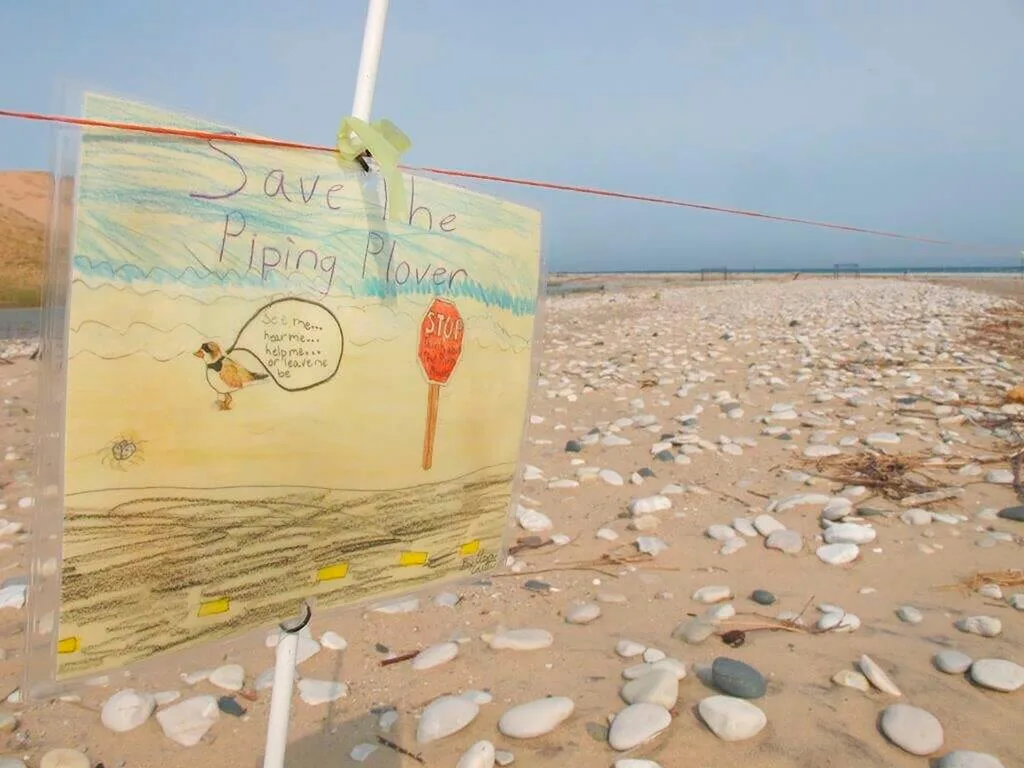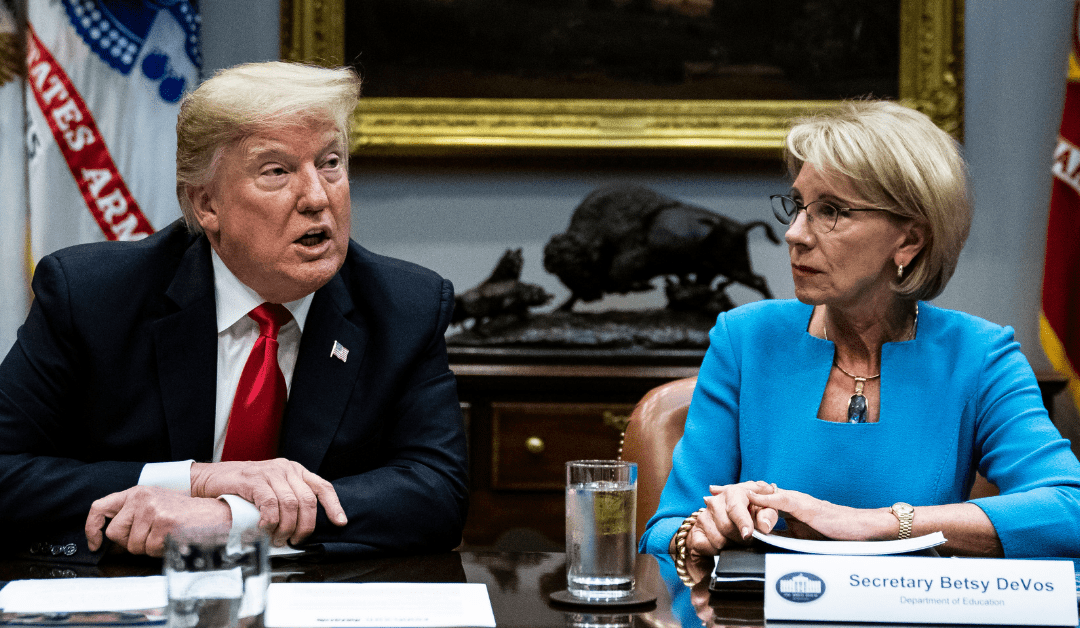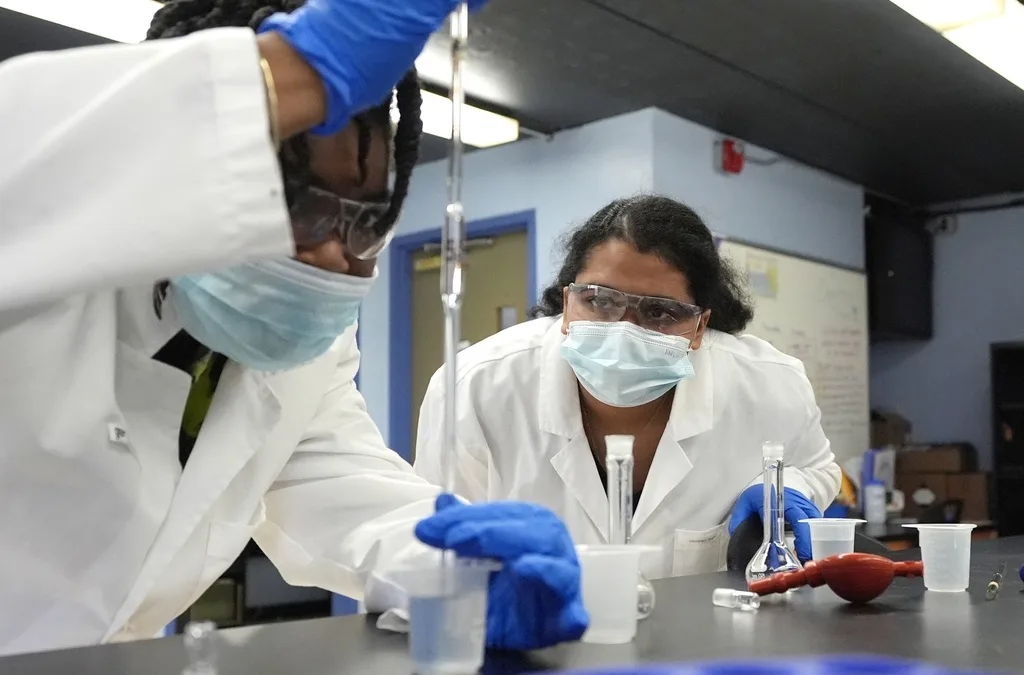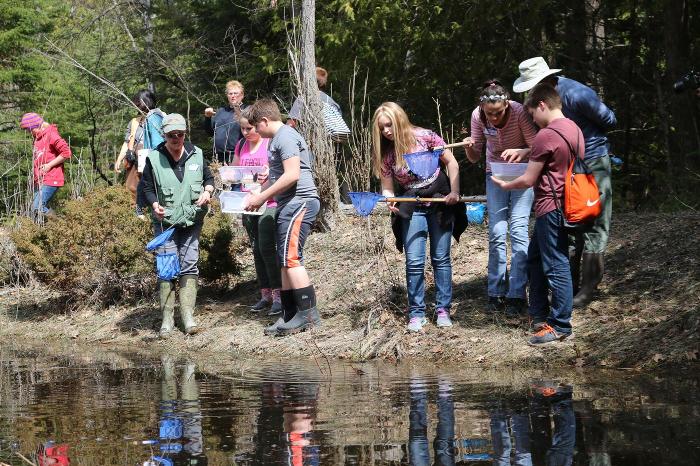
“Our greatest assets” are the unique species that inhabit our land. A vast majority of people are on board with a resolution to protect the state’s wildlife.
LANSING, Mich.—Michigan fifth-grade teacher Brian Peterson-Roest found peace at the beehives. Struggling with his identity at the time, he fell into a program that would forever change his life: educators incorporating pollinators into their curriculum.
By 2015, Peterson-Roest added a volunteer gig to his teaching hustle. He began beekeeping, opening six urban hives in Detroit.
Now, that number is much greater, at about 200, and he’s setting up a bee education center for Southeast Michigan through his nonprofit, Bees in the D.
“They were there for me at a time of my life,” he said. “I now want to be a voice for the bees.”
Peterson-Roest’s story is one of many The ‘Gander heard in 2021 about what Michigan’s vast and diverse habitat means intrinsically, culturally, and economically to people throughout the state. Other stories included how whitefish are a part of the origin story for Indigenous tribes, how the Michigan Department of Natural Resources has updated its response to endangered species following the revival of the Kirtland’s warbler, and how salmon have become a family and small business tradition, though they’re not native.

Some still undervalue Michigan’s creatures and species, overlooking their contributions to agriculture and tourism. And that’s not to mention the linchpin role they play in tying together Michigan’s culture.
But by and large, the tide of momentum has swollen in favor of conservation. And new laws and policy changes from local leaders play a big role in that.
Conservation of Endangered Species at Home
A new Data for Progress study found that nine in 10 Americans support a bill in Congress that would accelerate the recovery of 1,600 species on federal endangered or threatened lists.
The Recovering America’s Wildlife Act, sponsored by Rep. Debbie Dingell (D-Dearborn), has support from Republicans and Democrats alike, both in and out of the halls of Congress.
“The Recovering America’s Wildlife Act represents a strong commitment to addressing the current biodiversity crisis using innovative, on-the-ground collaboration that will protect our nation’s environmental heritage for years to come,” Dingell said after releasing an updated version in April 2021. The bill still is in committee, meaning it will need to pass through before it’s considered for a floor vote.
Environmental advocates have bemoaned the erosion of protections for rare animals under the Trump administration. Most notably in Michigan, Trump removed wolves from the country’s endangered species list, opening up a pandora’s box of hunting.
In Wisconsin, hunters killed 200 wolves in three days before the government suspended the season. Fewer wolves were supposed to be killed, and the season was supposed to last a week.
“What befalls one will befall the other,” said Nichole Biber, a librarian in East Lansing and a member of the Little Traverse Bay Bands of Odawa Indians. “Seeing how they were almost wiped out, we were almost wiped out.”
Wolves used to roam all of Michigan, but through hunting and deforestation, their numbers dwindled. In recent years, they’ve come back, but Biber and others worry that they’re still on unsteady footing. Now, 143 packs roam the upper peninsula.
Michigan has not opened up its wolf management plan. It is evaluating its approach, contingent on federal action.

Bring Home the Bees
In December, Gov. Gretchen Whitmer joined a host of other Midwestern governors in urging action on the proposed legislation. Those include Mike Dewine, the Republican governor of Ohio, Tony Evers, the Democratic governor of Wisconsin, and Eric Holcomb, the Republican governor of Indiana.
“Our fish and wildlife and their natural habitats are one of our greatest assets, and any threats to them impact not only our environment but also our economy,” Whitmer said. “The future of Michigan’s economy rests on our ability to come together and protect our wildlife and natural resources. That’s why I am proud to come together with a bipartisan coalition of governors to support the Recovering America’s Wildlife Act.”
Michigan has 26 federally listed endangered species per the U.S. Fish and Wildlife program. Many more species are listed as locally threatened.

Those include the bees.
Though reports have circulated about Michigan’s bees coming back, any celebrations happening now are premature, said Meghan Milbrath, an assistant professor at Michigan State University and coordinator of the Michigan Pollinator Initiative.
Michigan has hundreds—yes, hundreds—of species of bees, and many are suffering. Some haven’t been seen in years.
The new proposed legislation would bring funds toward habitat restoration, helping to bring back the bees, birds, and everything in between.
“I think a lot of people envision that a property just has to be overgrown in this hippie wonderland to be supportive to pollinators, and that doesn’t fit into everyone’s aesthetic,” Milbrath said. “You can fit in pollinator-supportive plants anywhere.”

Politics

Biden administration bans noncompete clauses for workers
The Federal Trade Commission (FTC) voted on Tuesday to ban noncompete agreements—those pesky clauses that employers often force their workers to...

Remember Betsy? Michigan education leaders blast Trump for ‘abandoning’ public schools
Michigan lawmakers and teachers are rallying behind President Joe Biden—and reflecting on a rough period for public schools after Trump put Betsy...

Michigan Dems announce bills banning PFAS in household products
BY SUSAN J. DEMAS, MICHIGAN ADVANCE MICHIGAN—Two Democratic House members on Monday announced they are sponsoring legislation that would eventually...
Local News

Children of Flint water crisis make change as young environmental and health activists
FLINT—Their childhood memories are still vivid: warnings against drinking or cooking with tap water, enduring long lines for cases of water, washing...

These students are protecting the ‘coral reefs’ of Michigan—and you can too
Vernal pools are a critical part of Michigan’s natural ecosystem—but they’re not protected by state regulations. Here’s how Michiganders are...





